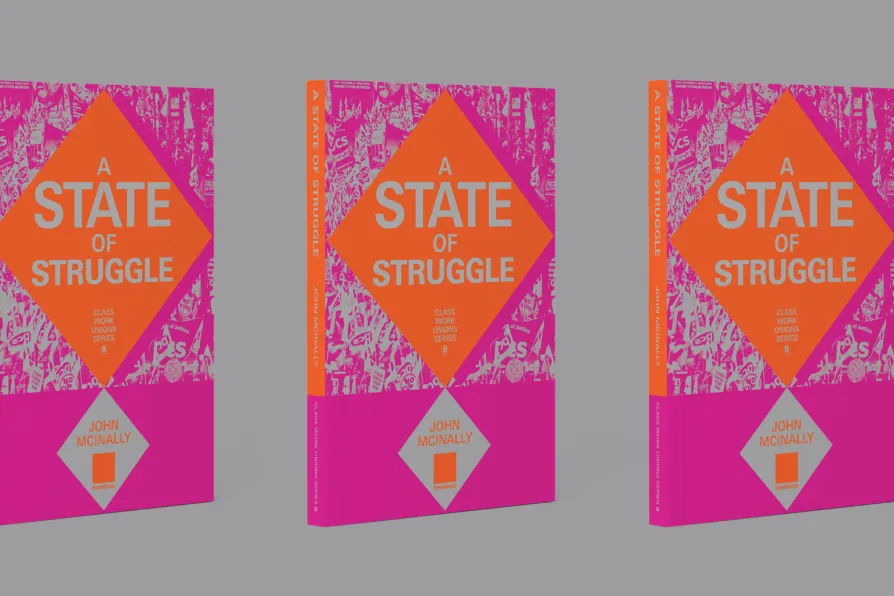As tens of thousands return to the streets for the first national Palestine march of 2026, this movement refuses to be sidelined or silenced, says PETER LEARY
Error message
An error occurred while searching, try again later.In part I of a serialisation of his new book, JOHN McINALLY takes a look at the early days of organising government workers


THE story of the Civil Service trade unions is the story of the modern British state. It is also the story of how small groups of “humble petitioners” would grow into a powerhouse of resistance when that state turned to attack the British working class.
The Civil Service had developed over centuries in an ad hoc manner in the age of aristocratic ascendancy. It was made up of largely autonomous bodies or departments riddled with nepotism and inefficiency. From the 1850s, the emergence of a reformed Civil Service as a reliable and efficient pillar of the state was driven by the ruling class’s more far-sighted strategists who recognised the need to construct an effective, centralised bureaucratic superstructure capable of administering society in the interests of the profit system, including the planning and supervision of state resources and finance.
Struggles for unionisation
Unionisation of Civil Service workers began in earnest in the 1850s, but their ability to organise was hampered by the existing grievance process in which issues were raised by petition on an individual basis. A complex grading system and their unique relationship to government and the state were further barriers to union building.
Demands for effective collective bargaining over wages, rights and conditions grew during the later 19th century, powering the transition from loose issue-based combinations, to staff associations and eventually towards recognisable trade unions.
Continued expansion of the Civil Service and the introduction of entry by merit had also opened the door for the lower middle classes, and eventually for the working class.
Aware that strike action by isolated groups of clerical workers could be easily handled by the government, radical activists, many influenced by socialism and the New Unionism, drew the conclusion that inter-departmental and all-grade combinations were required to deal with their powerful employer.
The process of radicalisation deepened prior to the first world war with further growth in both the workforce and in union membership. Inter-union co-operation increased alongside stronger links with the wider labour movement.
Reformism and bureaucratism
Despite these radical impulses, trade union bureaucratism and its interconnection with reformist ideology also became a feature in the development of Civil Service trade unions. The result was the emergence of the Whitley System of “negotiated compromise.”
Responding to the revolutionary currents that followed World War I, this government-sponsored arrangement involved work councils as a forum for the settlement of grievances without resort to industrial action. From the 1920s onwards, the effect was to tie Civil Service unions to a collaborative form of industrial relations that provided the government with a relatively stable negotiating medium. This ensured that they could deliver their strategic priorities for the Civil Service within the parameters of broader economic and political policy.
This highly structured form of institutionalised collaborationism encouraged a bureaucratic culture in Civil Service trade unionism that was evident on both its right and left wings. Over the years, the system also provided fertile soil for the development of a particular stratum within the unions that strengthened the basis for collaborationism — lay bureaucratism.
Between the wars
Formed in 1921, the Civil Service Clerical Association (CSCA) under its socialist general secretary, WJ Brown, was at the very forefront of campaigning and support for the Labour Party and co-operation with other TUC-affiliated unions. Parliamentary activity became a central feature of union campaign work, and it developed considerable expertise in targeting and lobbying MPs of various parties.
During the 1926 General Strike, the CSCA was in the TUC’s “Third Line,” remaining at work and contributing the maximum financial and other practical support to the strikers. In the aftermath, the government took its revenge by specifically targeting the CSCA and other Civil Service unions.
They were barred from operating political funds and prohibited from affiliating to the Labour Party and TUC, as well as from professional and international Civil Service organisations. This deliberate attempt to further sever Civil Service trade unionism from the wider movement had a deep impact, but it did not prevent them from campaigning for their demands. Calls for public expenditure reduction by the National Government to deal with the economic slump led to cuts in Civil Service workers’ pay. Despite the industrial weakness of the unions, fightbacks against attacks on pay and conditions were launched, which included mass demonstrations in major cities in October 1931.
The influence of socialism and of individuals like Brown played a significant part in the development of Civil Service trade unionism during these decades. But besides the insidious effects of reformism and bureaucratism, antagonisms between socialists and the right wing were also present and would develop in a sharper form in the post-war years.
John McInally, long-time vice-president of the PCS, is author of the newly published book A State of Struggle (Manifesto Press), with an introduction by Mark Serwotka. In it traces the history of the Civil Service trade union movement, detailing the sharp battles between the rising Broad Left and the State-backed Moderates, the struggle to build a fighting democratic union, the pensions battle, the conflicts with both Labour and Tory governments and the role of PCS as a beacon of resistance to austerity, cuts, discrimination and imperialist war. Part II of this serialisation will appear next weekend.
To buy the book visit the Morning Star shop at shop.morningstaronline.co.uk; and to attend the book launch at the Marx Memorial Library, London, on November 12, 6.15pm to 8pm, go to https://tinyurl.com/JohnMcInallyBook.










